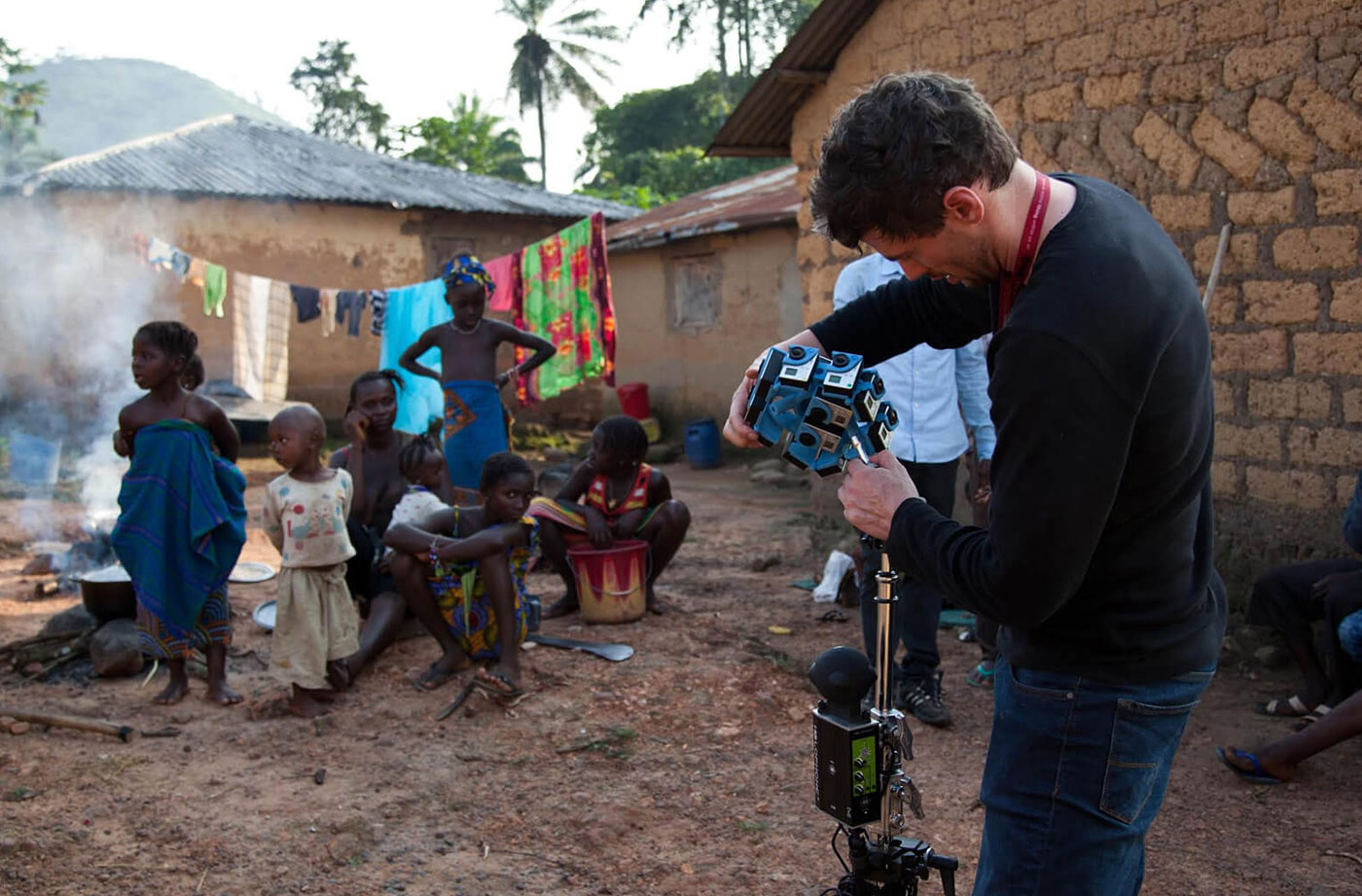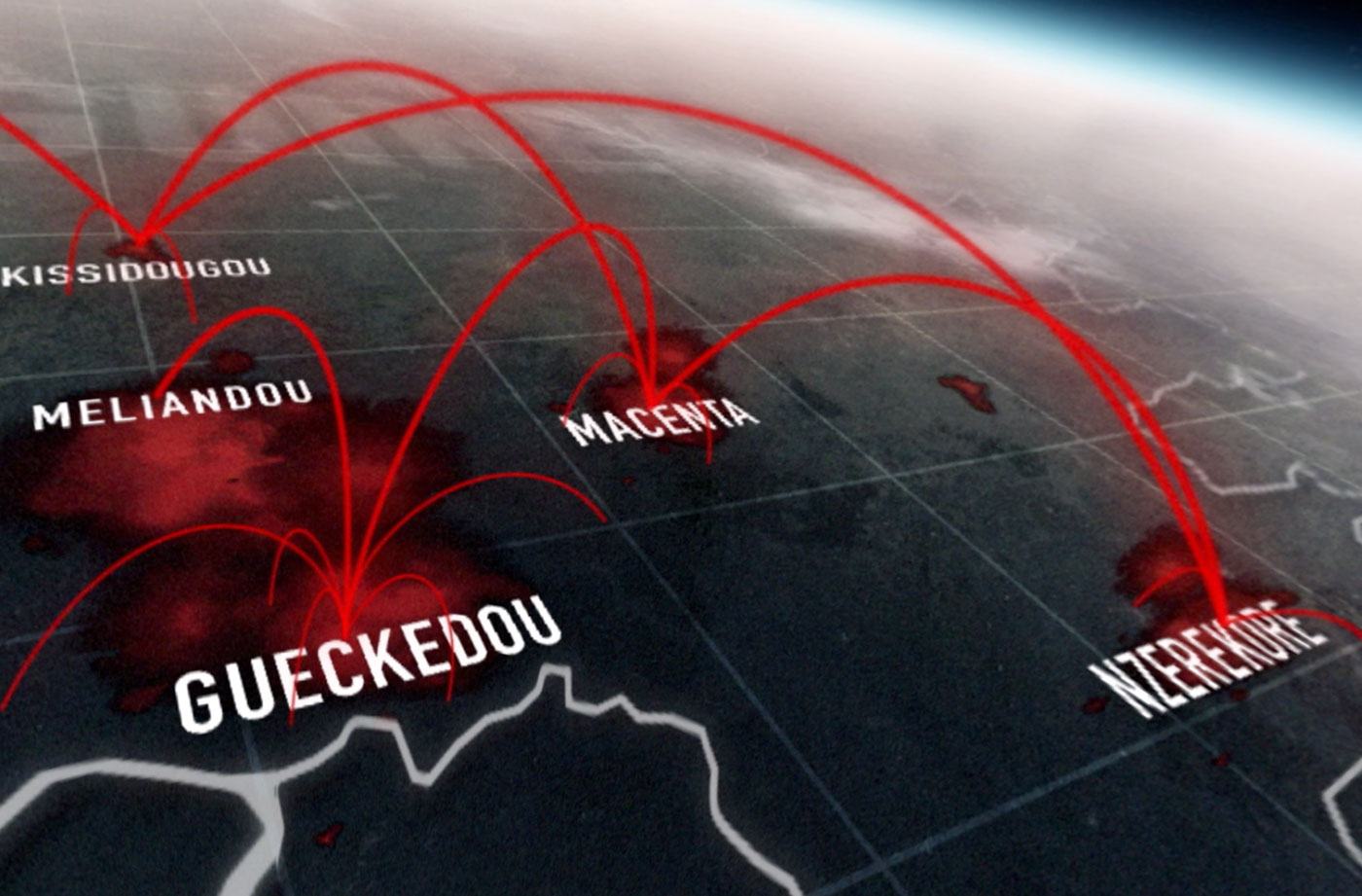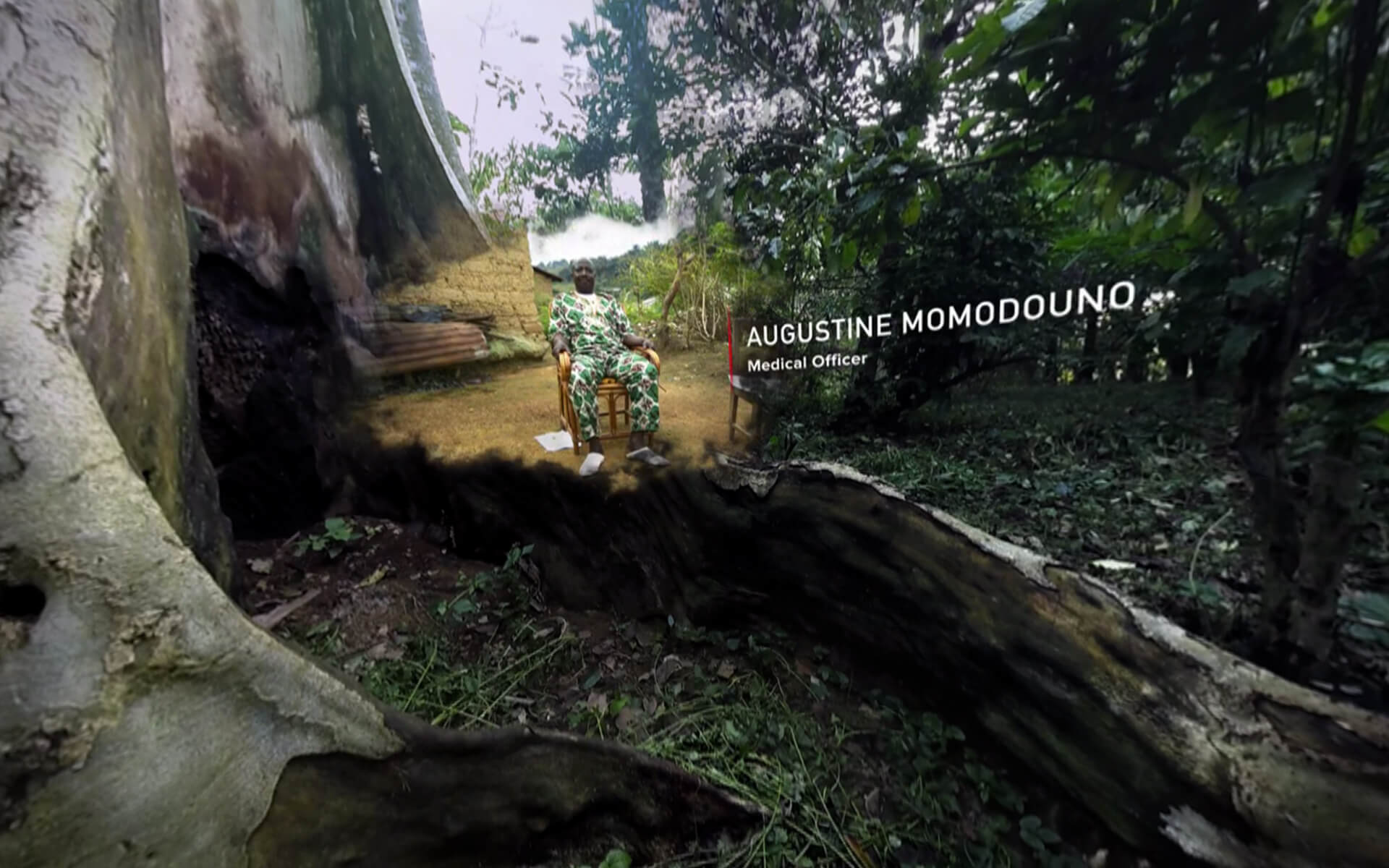CONCEPT DESIGN
Working with the executive team at Secret Location, I helped to develop the creative concept behind the virtual journey. My role involved shaping the narrative to effectively capture the vast scale of the Ebola outbreak, from the microscopic virus to the widespread devastation it caused across West Africa.
Virtual reality was the ideal medium to tell this story, allowing the audience to move from the minuscule environment inside the human body, through the intimate, harrowing experience of encountering the virus at the individual level, and upwards to the global impact of its transmission.
DIGITAL NARRATIVE
VR helps champion the narrative by placing viewers directly into the environment, making them feel as though they are witnessing the events unfold firsthand.
By leveraging immersive VR technology, we enabled viewers to step into key locations, like the initial village in Guinea and the makeshift field hospitals overwhelmed by patients, providing a visceral understanding of both the personal and systemic scale of the crisis.
My focus was on ensuring that the transition between these locations felt fluid, utilizing VR’s unique ability to create empathy and allow the audience to feel as if they were physically present at the heart of the outbreak.
OUTCOMES
Winner of the 2016 Peabody-Facebook Futures of Media Award.
The project pioneered the use of virtual reality in investigative journalism, setting new standards for how immersive technology can tell complex, real-world stories with emotional and factual depth.
The VR experience was able to connect global audiences to the epidemic in West Africa, amplifying the reach of the story and encouraging a more informed, compassionate response to global health crises.
The immersive nature of VR allowed viewers to experience the human toll of the Ebola outbreak firsthand, fostering a deep sense of empathy and raising awareness about the global health crisis.















